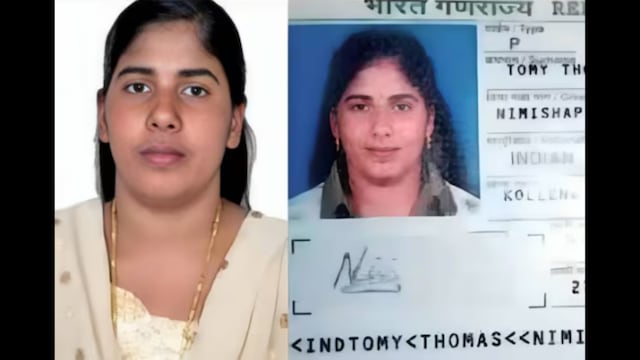Nimisha Priya’s Death Sentence Cancelled in Yemen After Years of Diplomatic Efforts
Nimisha Priya, an Indian nurse from Kerala sentenced to death in Yemen for the 2017 murder of her business partner. According to the office of the Indian Grand Mufti Kanthapuram AP Abubakker Musliyar, a high-level meeting in Yemen’s capital Sanaa decided to completely cancel her previously suspended death sentence. Her execution, originally slated for July 16, 2025, had been halted a day earlier after urgent diplomatic and humanitarian appeals, including interventions by the Indian government and religious leaders.
NATIONAL
Thinkbrief
7/29/20252 min read


A wave of relief swept across India as news emerged that Yemeni authorities had overturned the death sentence of Nimisha Priya, a nurse from Kerala convicted of murder. The announcement, shared by the office of India's Grand Mufti Kanthapuram AP Abubakker Musliyar, followed a decisive meeting in Sanaa and marked the latest chapter in a case that has galvanized widespread diplomatic and humanitarian action.
Nimisha Priya’s journey reveals a story of resilience and desperation. She left Kerala for Yemen to pursue better prospects, eventually founding a clinic with Yemeni national Talal Abdo Mahdi in 2015. Because foreigners are not allowed to own businesses independently in Yemen, such partnerships are common. The arrangement quickly soured as Mahdi began abusing his position, withholding Priya’s earnings and allegedly exploiting her, even seizing her passport, which left her trapped. According to Priya’s family, she endured repeated abuse and torture, and when she sought help from Yemeni authorities, her pleas were ignored.
In 2017, driven to desperation, Priya attempted to sedate Mahdi after he refused to return her passport. The plan went tragically wrong, resulting in Mahdi’s death from a drug overdose. She hid the body in a water tank. Arrested and tried for murder, Priya received a death sentence in 2020. Her case triggered intense public debate in India and Yemen, with calls from humanitarian organizations and global rights advocates for fair treatment and mercy.
International diplomacy intensified as the scheduled execution date of July 16, 2025, approached. The Indian government, humanitarian groups, and prominent leaders—including Indian Christian evangelist KA Paul and the Grand Mufti—mounted urgent campaigns, each contributing to high-level appeals. The fervor prompted Priya’s family to travel to Yemen in a bid for clemency, drawing global attention and support.
The latest breakthrough came when the Grand Mufti’s office announced that Yemeni authorities had agreed to cancel Nimisha Priya’s execution following confidential negotiations in Sanaa. While the Grand Mufti’s declaration sparked celebration among Priya’s supporters, India’s Ministry of External Affairs cautioned that they were waiting for official written confirmation from Yemen before declaring an absolute victory, noting that only the execution had been suspended so far.
The case has cast a spotlight on the vulnerability of Indian migrant workers in the Middle East, highlighting the risk and isolation women like Priya often face. International outrage and sustained diplomatic pressure brought the case to the forefront, making it a landmark in rallying humanitarian intervention on behalf of expatriate workers.
As Nimisha Priya awaits formal documentation of her reprieve and possible return to India, her story serves as a rallying point for advocacy and reform in the treatment of foreign detainees. The Supreme Court of India continues to monitor her status, with an update scheduled for August 14. Priya’s ordeal now stands as both a warning and a beacon of hope for those fighting for justice and dignity abroad.